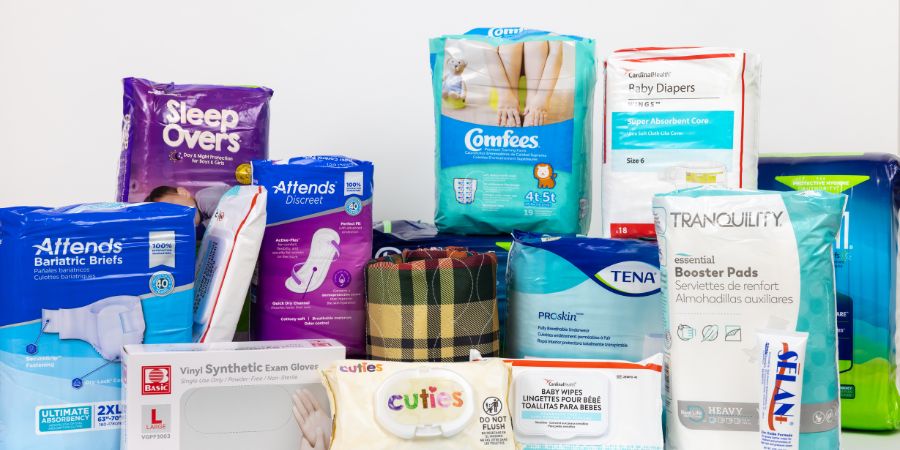When you're born, your parent is your lifeline. They feed you, burp you, change you; you're completely dependent on their care. Then, as you grow older, you become more and more autonomous and independent of your parents, and it's a very exciting time. Your parent is still the invincible lifeline that guided you through the beginning of your life, but then things start to change. Your parents grow older, and they begin to show signs of their increasing age.
It can start as small things - needing reading glasses, forgetting where they put the remote, asking for a hand to get up out of a chair, etc. However, as your parent transitions into their older years, you may have to find a caregiver for them. You might even begin to become their primary caregiver, yourself. This is where things can start to become uncomfortable. In this new role, the child becomes the surrogate parent. However, some changes don't have to be as drastic as they initially seem. Discussing intimate subjects such as continence care can be intimidating. Trust us, we know. However, there are ways to receive help. If you keep these five factors at the front of your mind, you can set both you and your parent up for success.
Check Your Eligibility
In 2 easy steps!
From catheters to pediatric and adult bladder control supplies, discover the continence care essentials covered by your insurance.
1. Talk to Your Parent
This may seem like a given, but it is still an important thing to remember. The importance of keeping open, honest communication with your parent as they grow older is second to none. If you can both be honest with each other on expectations and how certain obstacles will be handled from the very beginning, it can make later conversations much easier. For example, it is important to reassure your parent that they will have your support if they begin to experience health problems.
Medical conditions such as urinary incontinence can be very uncomfortable to discuss for both you and your parent, but talking about incontinence before it becomes their reality can make it an easier conversation in the future. If you make a plan of action before it becomes a problem, you will be better prepared going forward. Any time your body seems to betray you, it can be very unnerving. This is important to remember when approaching difficult discussions with your parent.
If your parent does not want to discuss their continence care with you, encourage them to make an appointment to speak with their primary healthcare provider about getting a physical exam. As backwards as it may seem, your parent may feel more comfortable talking to somebody who isn't close to them about issues of incontinence. No matter who they talk to, it is also important to let your parent know that urinary incontinence is extremely common, and it is also very manageable! In the United States, it affects 1 out of 2 women and 1 out of 4 men. It is likely that they already know somebody with urinary incontinence, and they may not even know! Above all else, the most important thing to remember is that the earlier incontinence is addressed, the earlier you can begin proper management and treatment options.
2. Look for the Signs
Ideally, after you talk with your parent about incontinence, they will tell you when beginning symptoms occur. However, as you may already know, life doesn't always go exactly as we plan. Because incontinence can be embarrassing, many people, including children and elderly adults, may try to hide their symptoms. They may fear what is happening to their bodies, and they may also be in denial. It is important to keep an eye out for any major lifestyle changes that your parent may be using to hide their incontinence symptoms. If the incontinence is left hidden and untreated, it can lead to unpleasant medical conditions like urinary tract infections (UTIs), which can further exacerbate the symptoms of incontinence. Being aware of signs of incontinence in your parent is crucial because incontinence can be a side effect of a more serious health condition like multiple sclerosis, Alzheimer's, or Parkinson's Disease.
Common ways people hide incontinence include:If your parent exhibits any of the above lifestyle changes, it may be time to talk to them about their treatment options when it comes to managing incontinence. It is important to remind them that their quality of life can seriously improve when they have and use the proper incontinence care products.
3. Be Prepared
If you've already been through the first two factors, and your parent currently has incontinence, the next step to consider is ensuring they are prepared. Having the right incontinence products for their specific needs is key to effectively helping your parent manage their incontinence. It is important to reinforce that urinary incontinence is nothing to be ashamed of. Having the confidence to live their life, despite their urinary incontinence, is a priceless gift, and it's a gift they deserve to experience. However, we also recognize that continence care supplies can often be very costly.
We recommend having your parent apply for coverage of their incontinence products through their insurance. To see if they qualify for coverage through their insurance provider, you can fill out our qualify form below. We will work with their health care provider to obtain a prescription, so all you have to do is fill out our simple form.
Whether you are paying out of pocket for your parent's incontinence products, or receiving them through insurance, there are a few ways to ensure that your parent is always prepared:
4. Clear A Path To The Restroom
Another important factor of successful incontinence care is ensuring there is an easy, obstacle-free pathway to the restroom. If your parent has urge incontinence or an overactive bladder, they can often find themselves rushing to the restroom at a moment's notice. If this occurs, and they run into an object on the way to the restroom, this can cause an accident. It is also important that your parent has clothing items that are easy to take off. Hard to maneuver buttons or clasps can make incontinence symptoms much more stressful. However, certain incontinence products like briefs or pull-ons can help reduce anxiety about urine leakage and make it easier (and safer) to make it to the restroom in time. These incontinence products can also provide your parents ease of mind and confidence, both of which are priceless.
Ensuring that your parent also has a clear path from their bed to the restroom is important. Waking up in the middle of the night to use the restroom can be disorienting. Making sure there are no large pieces of furniture or other obstacles in the pathway can save your parent from falls or other injuries. Placing a night light near the door to the restroom or in the hallway leading to it can also be a helpful way to ensure no falls occur when it is dark. Having a clear, well-lit pathway is an easy way to help your parent manage potential bladder problems.
5. Treatment Options
The above suggestions are all great ways to help navigate the side effects of incontinence with your parent or loved one. However, it is crucial to take them to a urologist when symptoms of incontinence begin to arise. Taking your parent to a urologist will ensure that your parent is properly diagnosed for the type of urinary incontinence they have. Whether they have urge incontinence, stress incontinence, overflow incontinence, functional incontinence, or a mixture of the types, identifying the type of urinary incontinence is key to a successful management plan. Each type has different symptoms, and therefore each type of urinary incontinence has different treatment options.
A few treatment options/management strategies include:


Incontinence Care Made Easy
While incontinence can be a serious source of anxiety for both the individual affected and their caregiver, we are here to help. Incontinence does not have to rule your life! Once your parent sees a urologist and finds the best treatment plan for their specific needs, their quality of life will improve immensely. Finding the right incontinence products makes all of the difference when managing symptoms.
At Aeroflow Urology, we pride ourselves on providing quality continence care service and products. To see if your parent qualifies to have their continence care products covered by their insurance, fill out our easy to use form.









